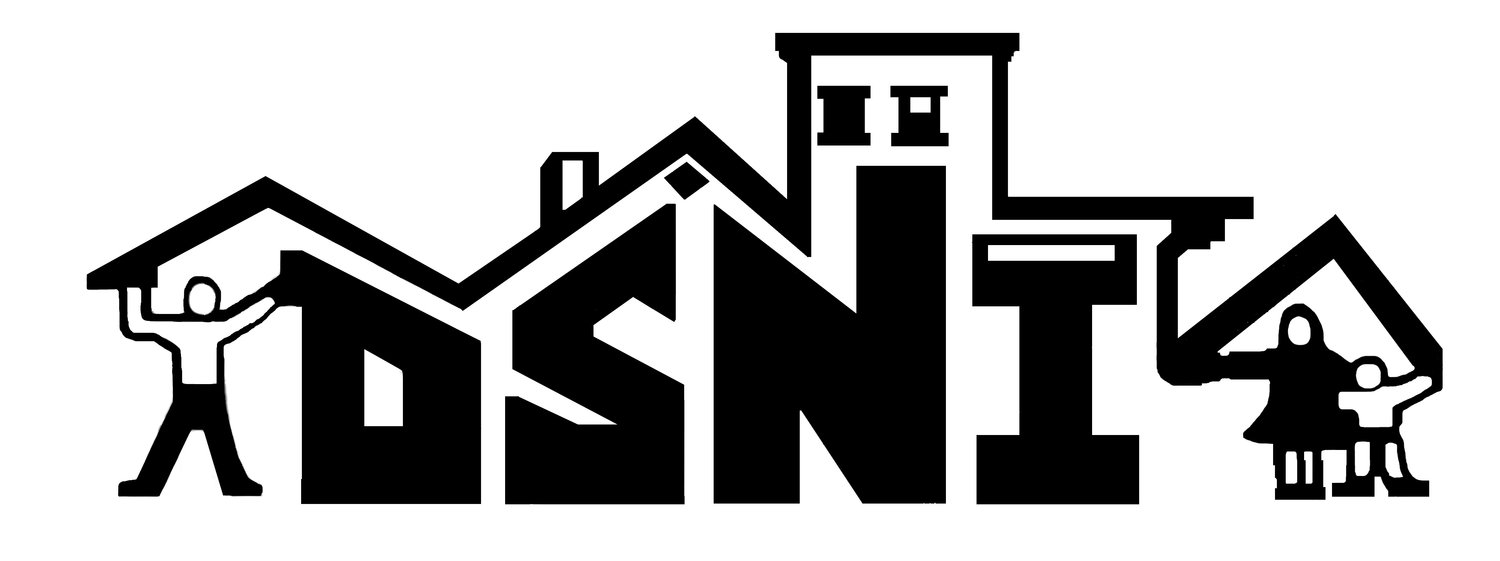About
DSNI Deconstructs is a podcast series that engages guests and listeners to question, analyze and think towards the futurity of our community and city together.
In the spirit of DSNI’s history of bringing communities together to plan, organize and give voice to those most impacted, DSNI Deconstructs will explore with our guests key elements that shape policy & practice that impact our community and its members. With a focus on land trusts and the efficacy of community organizing, together we will explore through the lens of racial equity generative paths forward as we question, analyze and think towards the futurity of our community and city together.
Listen to the episodes below on Apple Podcasts, Amazon Music, Google Podcasts, PodBean and Spotify
Listen to a preview of DSNI's new podcast DSNI Deconstructs, as DSNI engages guests and listeners to question, analyze and think towards the futurity of our community and city together.
Dr. Karilyn Crockett's research focuses on large-scale land use changes in twentieth century American cities and examines the social and geographic implications of structural poverty & racial formations. Karilyn's dissertation research investigated a 1960s era grassroots movement to halt urban extension of the U.S. interstate highway system and the geographic and political changes in Boston that resulted.
John Barros joins us to examine the relationship between democracy, community land trusts, and the power of citizens to decide the future of their built environments. He shares his perspective as the former Chief of Economic Development for the City of Boston and the former executive director of the Dudley Street Neighborhood Initiative.
Lisa Owens, the executive director of the Hyams Foundation and former executive director of City Life Vida Urbana joins us to discuss community organizing and the critical role that philanthropy plays. Listen to learn more about the challenges, victories, and current climate of organizing around the displacement of communities of color in Boston.
The Greater Boston Community Land Trust Network supports current and emerging CLTs to achieve long-term, collective control of land in and around Boston. Join us to hear the perspectives of key players in the CLT movement locally: Joy Gary, Executive Director of the Boston Farms CLT; Cole Huang, Community Organizer at the Boston Neighborhood CLT; Lydia Lowe, Executive Director of the Chinatown CLT; and Minnie McMahon, Community Organizer at DSNI.
Dr. Thea James, Executive Director of the Health Equity Accelerator at Boston Medical Center, is an expert on health equity and addressing violence and trauma in Boston’s communities. Professor Emeritus Dr. James Jennings has taught graduate courses on race, public policy, and community development at Tufts University's Urban and Environmental Planning and Policy program. Our guests share their perspectives on the wealth within Black and Brown communities, the impact of poverty on health outcomes, and the importance of community organizing and specific public policies to address the racial wealth gap.
Episode 6 focuses on the meaning of reparations, featuring the voices of two distinguished guests. Executive Director Eric Esteves of the Lenny Zakim Fund shares his perspective as a philanthropist, educator, artist, community advocate, and technologist. Dr. April Khadijah Inniss, Director of Community Engaged Research at King Boston, with a background as a pediatrician and mixed-methods researcher, brings her passion for health equity and social justice to the conversation.
Reverend Mariama White-Hammond is the Chief of Environment, Energy, and Open Space in the City of Boston. She is the founder of the New Roots AME church in Dorchester, and she is the chair of the New England Grassroots Environment Fund. Tune in to hear her deeply informed perspective on climate change, the future shocks we need to be prepared for, and the ways we need to organize. In this episode she also discusses the difference between the climate movement and environmental justice, and the role of people of color being at the table in conversations about the environment.
How do we come to understand something as possible? In this episode Nia Evans, director of the Boston Ujima Project, dives deep into this question as the leader of a groundbreaking solidarity economy organization in Boston. The Boston Ujima Project is a democratic, member-run organization building cooperative economic infrastructure in Boston, with a mission to return wealth to working-class communities of color. Tune in to Episode 8 to hear her describe how economic justice is not just a vision but an emerging reality in our city.
L'Merchie Frazier, a beloved artist and activist in Boston, is presently the executive director of SPOKE Art and the former Director of Education and Interpretation for the Museum of African American History in Boston and Nantucket. From her perspective as a member of the City of Boston's Task Force on Reparations, L'Merchie discusses how the city plans to work on healing racial inequities for descendants of slavery by developing reparative justice solutions for Black residents. She envisions an arts and culture renaissance in Boston accompanied by a culture shift in how we collectively value arts, culture, and creativity in under-resourced communities.




